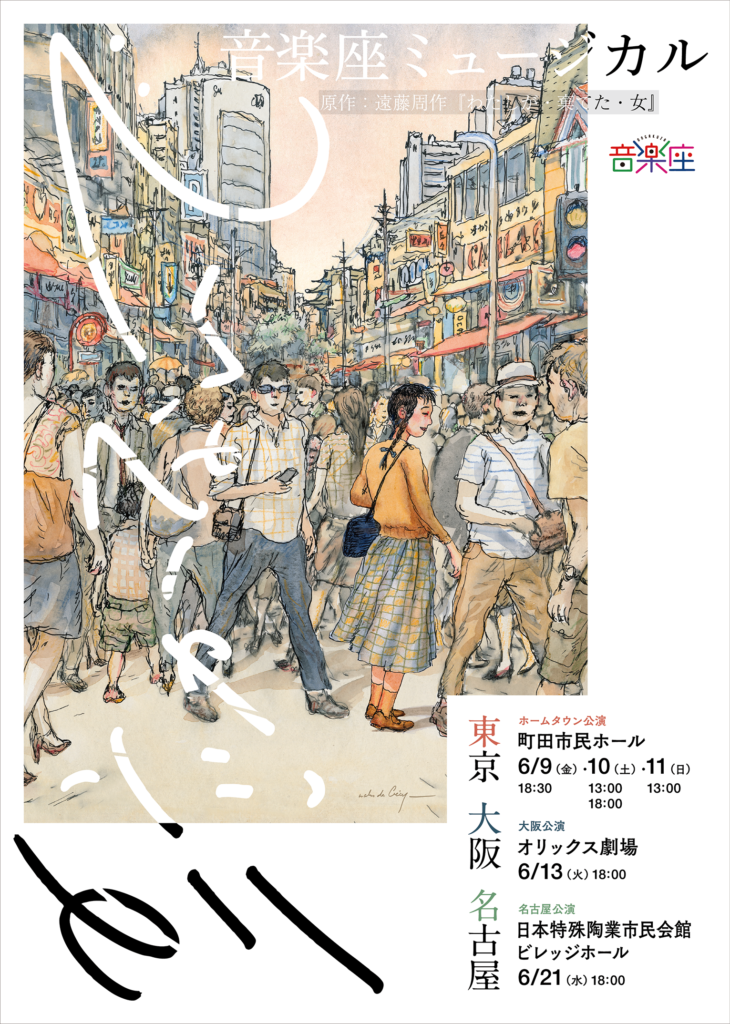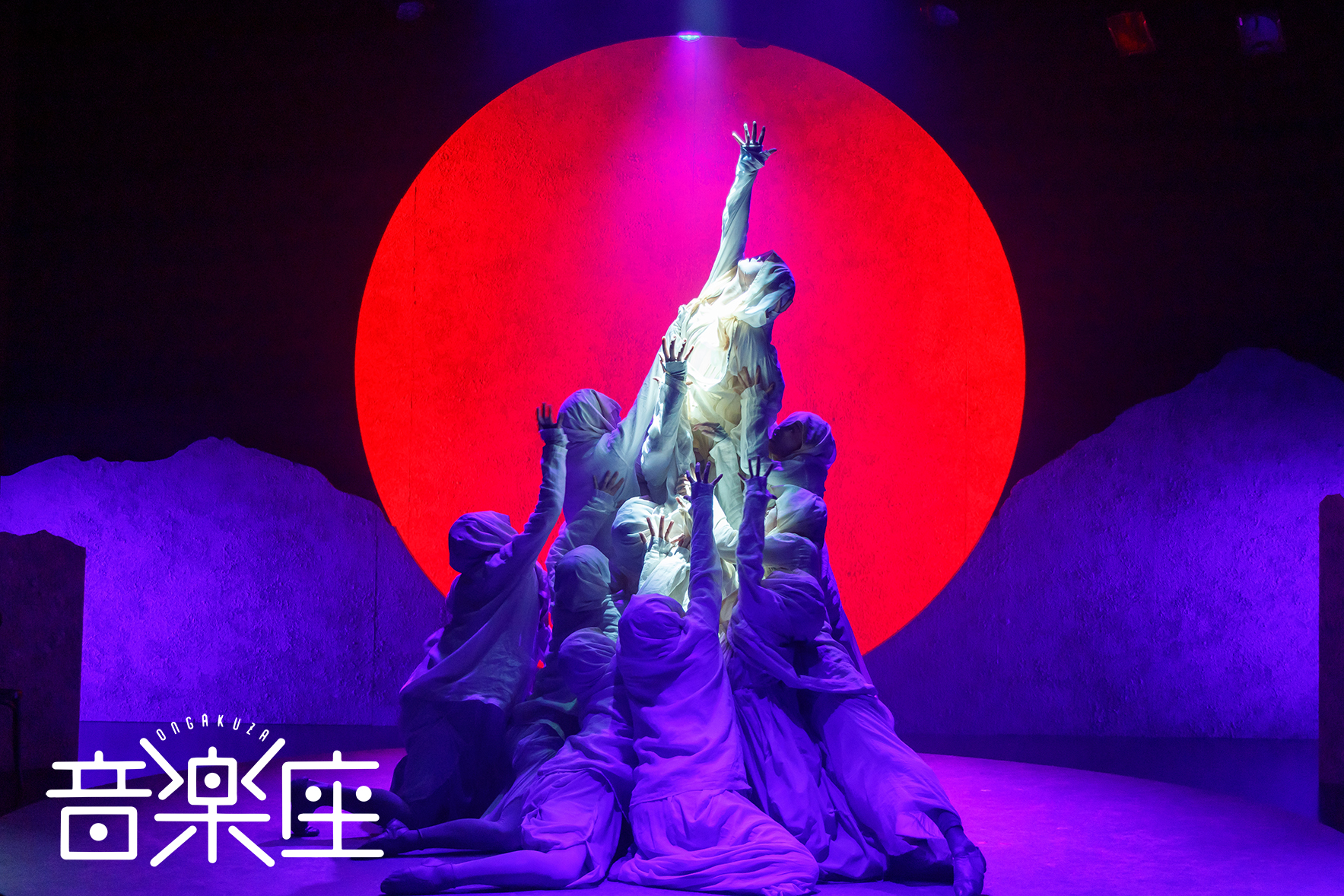They may all be classed as musicals, but such productions in Japan exhibit a remarkable variety of forms and content.
These include shows from overseas staged with foreign casts; shows from abroad presented under license by Japanese entertainment companies like Shiki, Toho and Horipro using Japanese actors; and also the original, uniquely Japanese ones produced by the all-female Takarazuka theatre company.
Added to that, new-style “2.5-Dimensional” musicals that draw on manga, animation stories and video/computer games for their contents have become increasingly popular over the past 20 years — in the process contributing greatly to the current musicals boom.
Recently, too, that boom has inspired a fresh interest by lots of theatre companies in creating musicals, so that the prosperity of this genre just seems to be snowballing with no signs of slowing down.
Amid this state of flux, the Tokyo-based Ongakuza company appears untroubled while continuing to present original musicals one after another as it has been doing since it was founded in 1987.
This time, Ongakuza will present one of its best-known original works, “Nakanaide” (“Don’t Cry”), at Machida Civic Hall in Tokyo from June 9–11, followed by performances in Osaka and Nagoya.
Adapted from Shusaku Endo’s 1963 novel “Watashi ga Suteta Onnna” (“The Girl I Left Behind”), the author was so moved that he needed two handkerchiefs for his tears when he attended the show’s premiere in Tokyo in 1994.
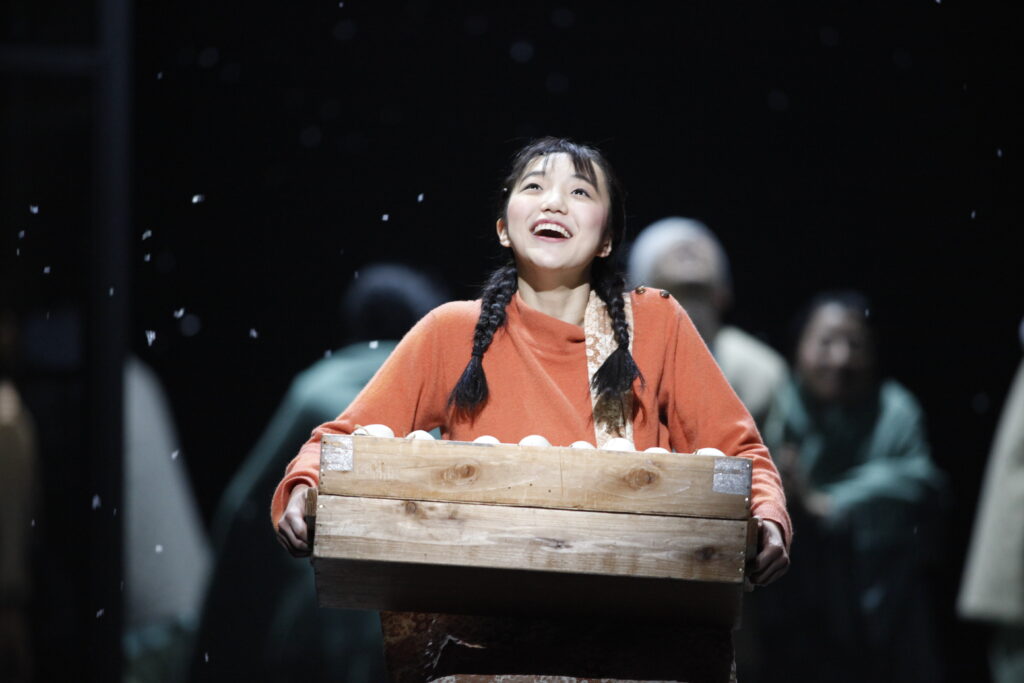
Stage photo of “Nakanaide”
Jstages.com recently visited Ongakuza’s office in Yotsuya, Tokyo, and interviewed the chief producer, Seiko Ishikawa, about the company’s aim in making its own musicals and its aspirations for the future — but starting with the fundamental question: Who was the founder, Reiko Aikawa?
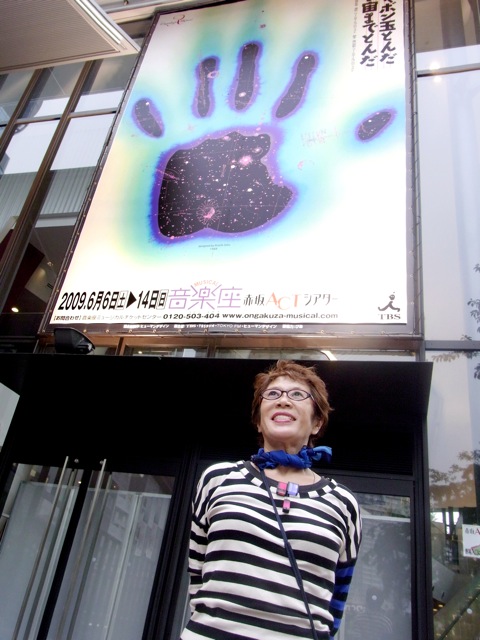
Portrait of Reiko Aikawa
Well, Reiko Aikawa wasn’t a person who studied drama at university and wanted to be a playwright and/or director, actor, or theatre technician, Ishikawa said.
“So we were considered an outsider’s group when she started the company and we’ve always been a ‘potsun to ikkenya’ (‘lone wolf’) in Japan’s theatre world,” she explained.
“Hence we are not familiar with trends in the industry,” she said with a laugh that served as a passing reference to today’s blossoming musicals movement.
Yet though Aikawa wasn’t a theatre-rooted person, Ishikawa continued, she loved to watch movies and read books — mainly difficult subjects such as cosmology, physics and philosophy. I am sure that she had some definite thing she wanted to express through musicals, she added.
“As a result, she developed her own methods and created works without being a slave to traditional ways people normally take when they create theatre and/or musicals. And Ongakuza musicals were born like that,” Ishikawa said.
In fact, she explained, Ongakuza’s musicals were fundamentally made to meet the personal needs of the founder, Reiko Aikawa, who passed away in 2016. And basically, she said, they’re about the value of fighting against difficulties and being strong in your life. In that sense, Ishikawa said making money from ticket sales was not Aikawa’s priority.
Aikawa founded SAMADHI Inc. in 1979 with businesses mainly operating in the areas of education and restaurants, with theatre as the last project because she knew that would cost a lot and she first had to make enough from her other activities to enter that field.
In the end Ongakuza’s first musical, based on Hiroshi Tsutsui’s novel “Shabondama Tonda Sora made Tonda” (“A Soap Bubble Flew to Space”), was finally staged in 1988. This original piece following a young couple’s growing-up story presents many of Aikawa’s own ideas as it portrays a girl from lowly origins who gradually changes her life to create a bright future for herself. A great success from the outset, the work remains a popular repertoire production the company has rerun many times.
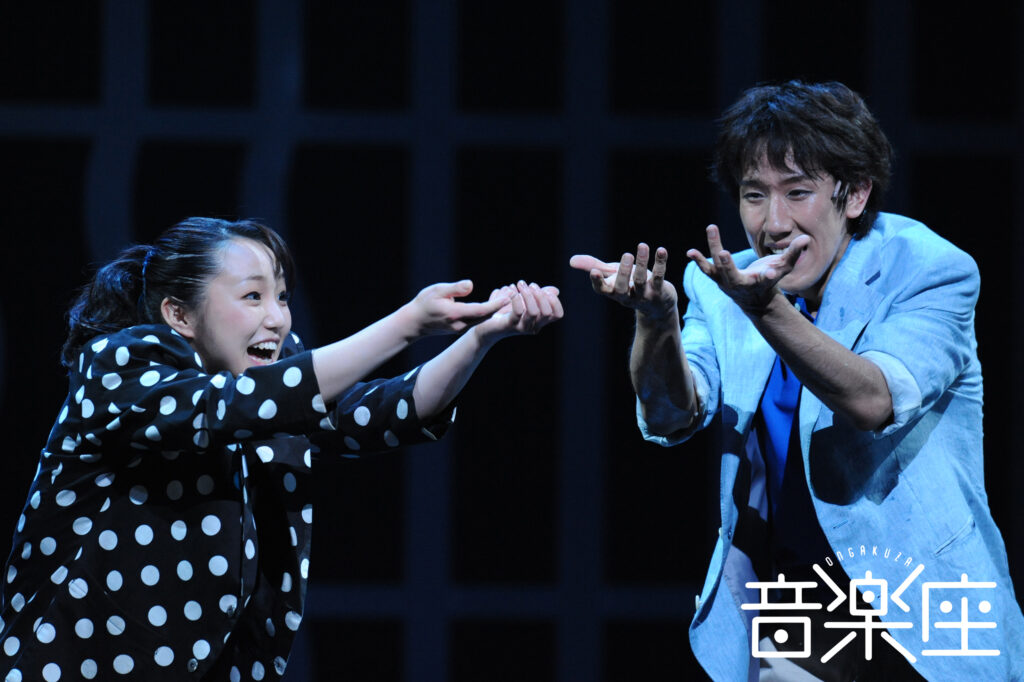
Stage photo of “Shabondama Tonda Sora made Tonda”
Then in 2020, when a new version of the work was staged under license by the major Toho entertainment company, it became a big hit enhanced by a brilliant performance from the leading musical actor Yoshio Inoue.
Now, having witnessed first-hand the rise of Ongakuza from an unknown, somewhat offbeat company to one frequently nominated for top honors such as the annual Yomiuri Theatre Award, the Kinokuniya Theatre Award and the Cultural Affairs Agency’s Arts Festival Award, Ishikawa analyses and explains why Aikawa chose musicals as her medium.
“Aikawa always said she wanted to deliver something that could be felt through the skin or the soul rather than just through words. She thought the best way to do that was by works that used plenty of music and highly abstract dance to express her thoughts,” she said.
“I think many straight plays have different attractions from musicals and many people love them. On the other hand, I think musicals have more chances to cross borders and be performed in foreign countries because through their powerful singing they can appeal to people who speak different languages.
“Also, those audiences can probably follow the story easier than straight plays in Japanese because in musicals the stories are usually more simple than in straight plays, which tend to explain the story minutely with lots of words. In that respect, musicals are international tools.
“Really, music and dance, the combination has miraculous potential. I think Japanese people are now finally realizing that great power of musicals these days, and that discovery among people has led the current musical movement,” Ishikawa said.
What is their next target?
Ishikawa recalled that when she saw the 2022 Olivier award-winning revival of the musical “Cabaret” in London, she felt strongly that the Ongakuza company needed to have an eye on launching into the international market.
In particular, she said she hopes one of the company’s other popular works, “SUNDAY” — based on Agatha Christie’s novel “Absent in the Spring” published under her pen name Mary Westmacott in 1944 — will be staged overseas either with a Japanese cast and English subtitles or under license with a foreign cast.
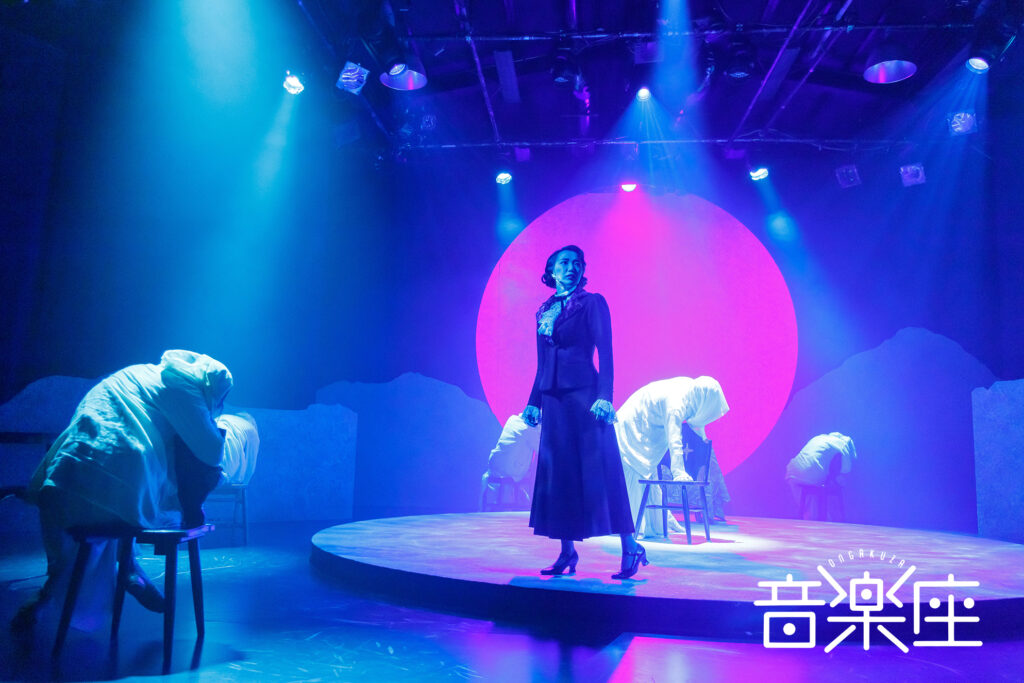
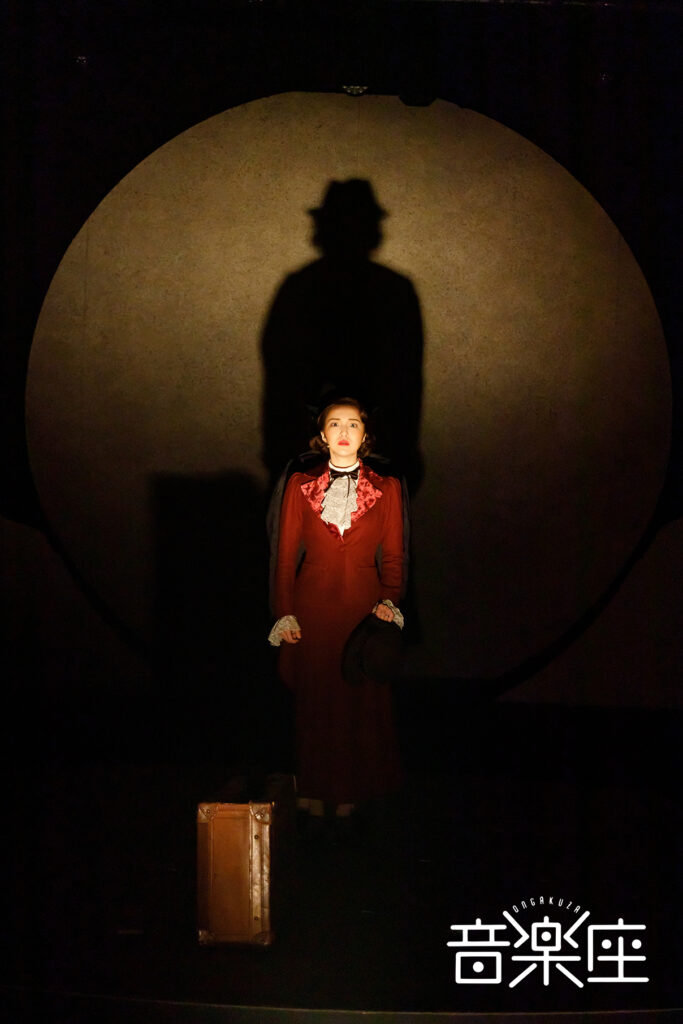
Stage photo of “SUNDAY”
She says she feels a positive feeling about this plan, because, “We translated the script of ‘SUNDAY’ into English and sent it to the Agatha Christie Foundation and they liked it so much and invited us to London. However, we were not able to meet the contact person as the person had Covid at that time … unfortunately.”
About their unique “Wormhole Project” method
Another unique feature of the Ongakuza company from the beginning has been the Wormhole Project, which is its basic approach to theatre creation.
So, rather than just following conventional Japanese theatre tradition, the company’s leader — previously Reiko Aikawa and now her son, Taro Aikawa — enlists experts from various fields such as writing, directing, music, choreography, stage-sets, costumes, lighting and acting to share their ideas across their fields as a communal team to create something that isn’t just the product of one director.
As a result, Ongakuza’s work is always credited to the “Wormhole Project,” without crediting a particular person.
Ishikawa explained why Aikawa insisted on not crediting herself individually, saying that “Aikawa knew she could write and direct by herself and the work would have a certain quality, but she always said ‘I want something beyond me’.
“And I think she believed that something deeper, and unexpected outcomes, could result from various creators with different sensibilities and subtly different feelings.”
She continued, “First of all, Aikawa wanted to create a place where the professional staff could freely exchange their opinions, and where they could trust each other. And she wanted to produce high-quality work that would change people’s lives and also give her more creative power and empower audiences.
“She probably thought that an impartial working organization would be the best way to achieve that — which is why she insisted on presenting our work as being created by the team. We have an environment where even newcomers can voice their opinions. If they don’t speak up, they are asked, “What are you here for? The Ongakuza is that kind of place.”
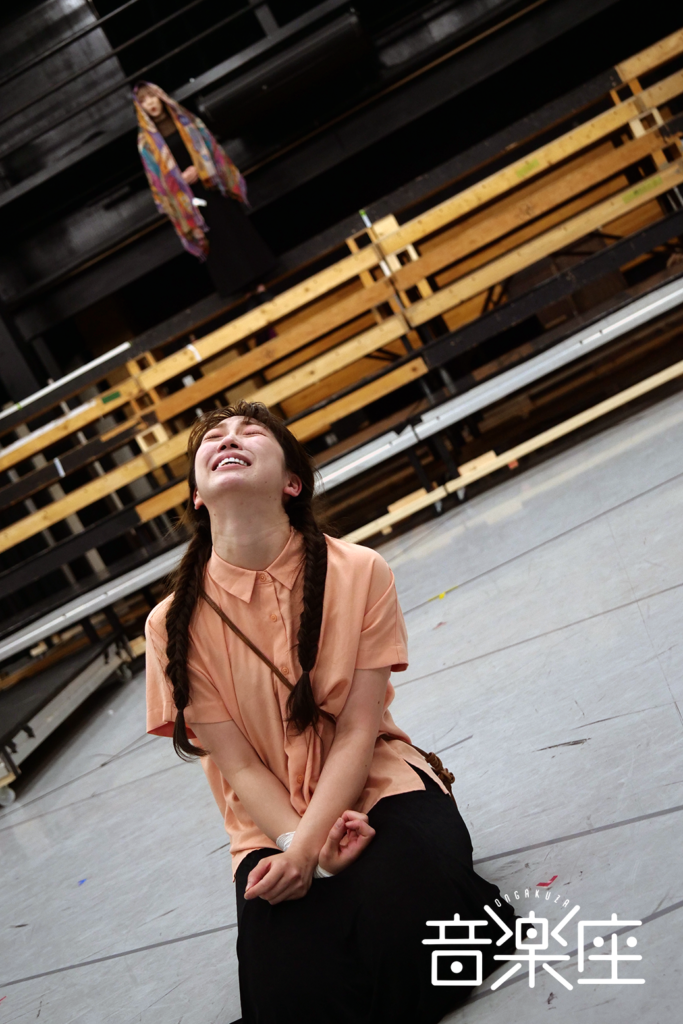
Rehearsal of “Nakanaide”
So where does the Ongakuza company go from here?
After Reiko Aikawa passed away in 2016, her son Taro, who had been working in a different industry, took over the reins from his mother as the head of the 40-strong Ongakluza company.
“We are so lucky as Taro had so much artistic sense. He didn’t want to be involved at first, but now he thinks it’s his true life’s work,” Ishikawa said with a smile.
She added, “If our musicals weren’t changing people’s lives, there would be no point in putting so much time and effort into it all. The starting point of the Ongakuza company was Aikawa’s personal ideas. She wanted to create works that would inspire people and give them more power to face life after seeing them. After all, I believe that’s what a work of art is actually about.”
“Nakanaide” (“Don’t Cry”) runs at Machida Civic Hall in Tokyo from June 9–11, then on June 13 in Osaka and June 21 in Nagoya.
For more details, visit www.ongakuza-musical.com
